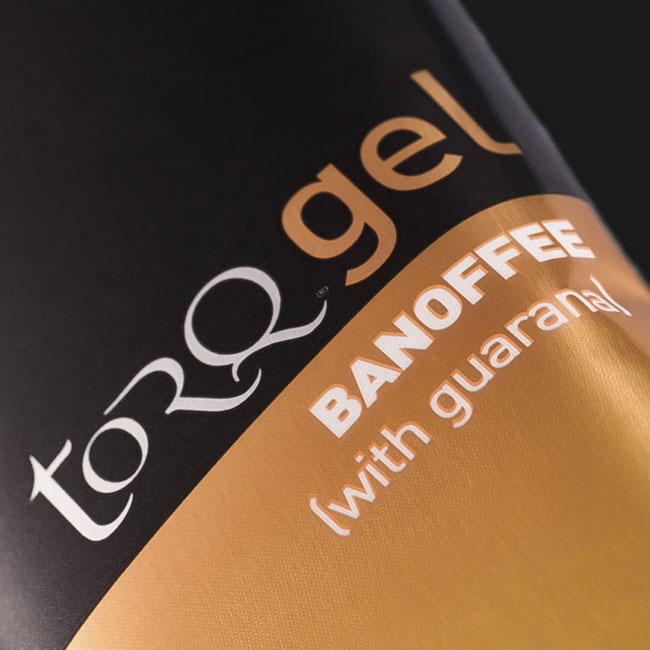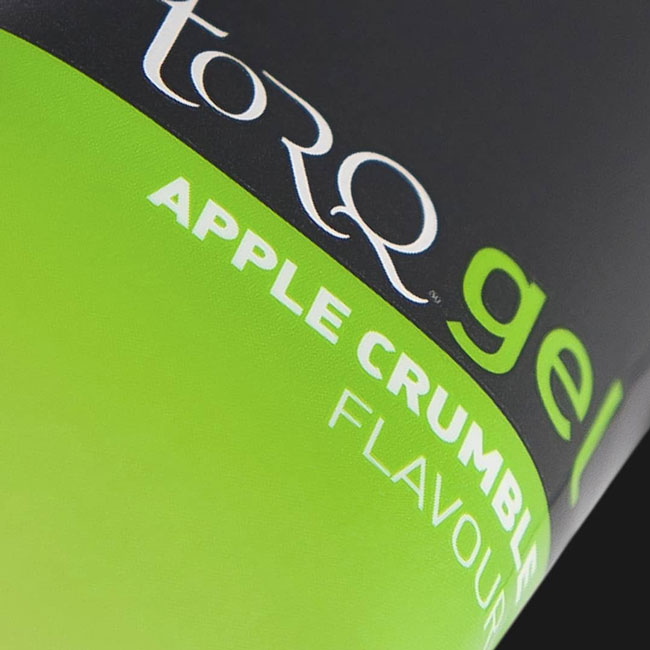You’d think that with delightful energy gel taste sensations like our newly released Lemon Drizzle and Cherry Bakewell flavours (not to mention the existing Rhubarb & Custard, Raspberry Ripple, Apple Crumble, Strawberry Yoghurt and Banoffee options) that all we care about at TORQ is how great our products taste!
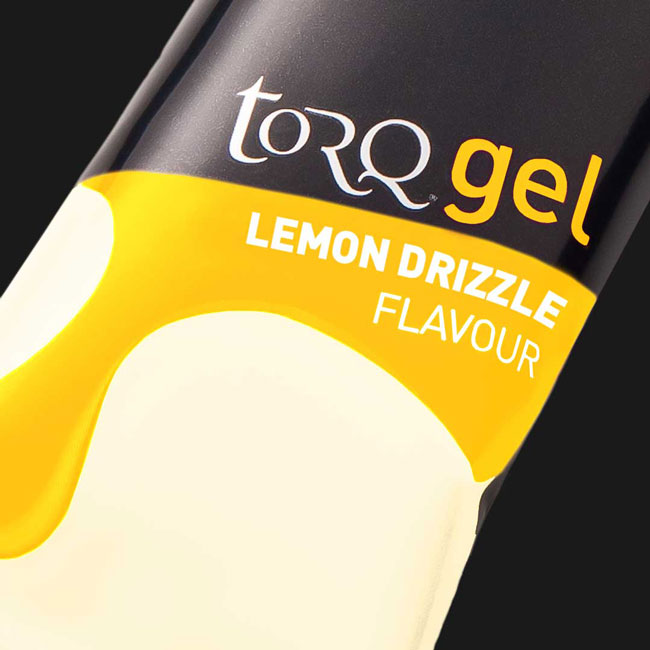
This couldn’t be further from the truth. Everything we do is painstakingly thought through and that of course means using natural flavours with our natural ingredients to create the best possible user experience. However, TORQ was founded as a Fitness Consultancy back in 1999 with a ‘Performance-First’ philosophy and the initial thing we do when we begin any new product development is get our heads into the research papers.
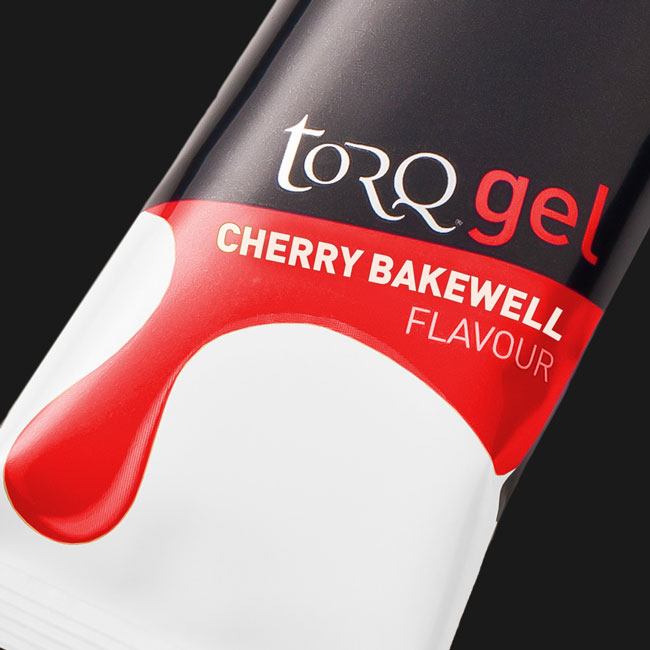
Backed by over 20 peer-reviewed published studies (listed at the bottom of this post), all of our gels are formulated using our trademark 2:1 Maltodextrin:Fructose blend for superior rapid carbohydrate delivery. Essentially, when Maltodextrin (a glucose polymer) is mixed with Fructose at a 2:1 ratio, this results in a 40% quicker carbohydrate delivery into the bloodstream than is possible with Maltodextrin-only formulations. Take a look at the ingredients on the packaging of the product you use if it’s not TORQ to see where the carbohydrate comes from?
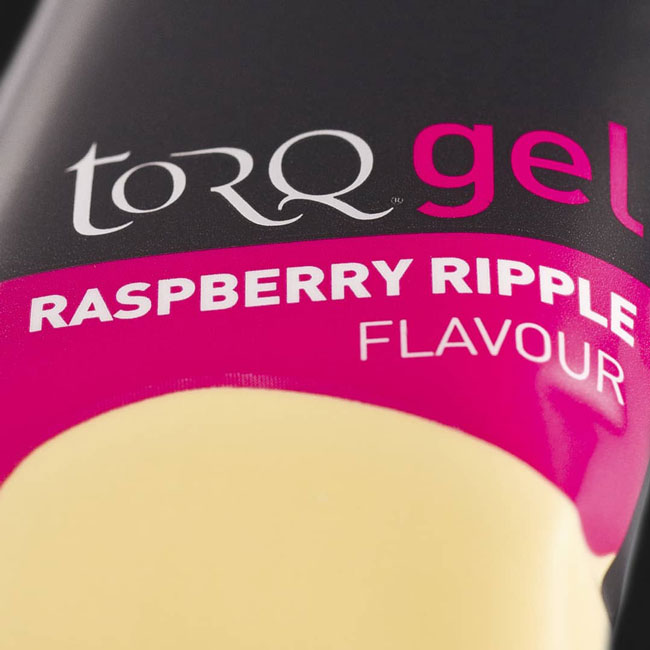
For an energy product, speed of carbohydrate delivery means EVERYTHING. The faster the delivery into your blood, the more product can be consumed per hour and the better your performance will be – fast cars burn lots of fuel and your body is no different. Also, the faster the carbohydrate delivery, the less gastro-intestinal discomfort you are likely to have, because it won’t be in your stomach long enough to cause problems. We’re sure you’ll appreciate, 40% quicker carbohydrate delivery is not a small benefit, it is highly significant.
To learn more about 2:1 and how this science is applied to our energy gels, take a look at this link:
https://www.torqfitness.co.uk/product-category/nutrition/fuelling-system-products/gels

To learn about how we also incorporate this 2:1 technology into our energy drinks, bars and chews, allowing all of our products to work seamlessly together, take a look at the TORQ Fuelling System by clicking HERE.
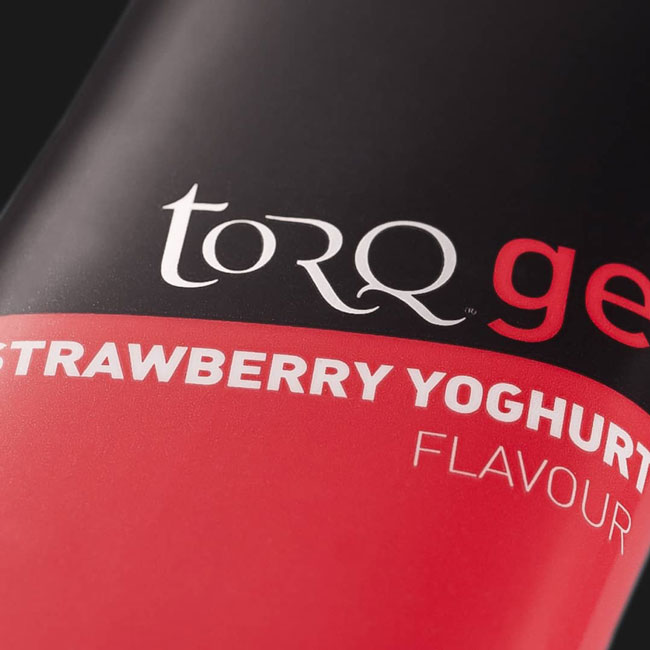
Research References:
- Stellingwerff, T & Cox, GR. (2014)
Systematic review: Carbohydrate supplementation on exercise performance or capacity of varying durations. Appl Physiol Nutr Metab. 2014 Sep;39(9):998-1011. - PB., Ingraham, SJ. (2015)
Glucose-fructose likely improves gastrointestinal comfort and endurance running performance relative to glucose-only. Scand J Med Sci Sports. [Epub ahead of print]. - Currell, K & Jeukendrup, A.E. (2008)
Superior endurance performance with ingestion of multiple transportable carbohydrates. Med Sci Sports Exerc. 40(2):275–81. - Triplett, D., Doyle, D., Rupp, J., Benardot, D. (2010)
An isocaloric glucose-fructose beverage’s effect on simulated 100-km cycling performance compared with a glucose-only beverage. Int J Sport Nutr Exerc Metab. 20(2):122–31 - Tarpey, M.D., Roberts, J.D., Kass, L.S., Tarpey, R.J., Roberts, M.G. (2013)
The ingestion of protein with a maltodextrin and fructose beverage on substrate utilisation and exercise performance. Appl Physiol Nutr Metab. 38(12):1245–53. - Rowlands, D.S., Swift, M., Ros, M., Green, J.G. (2012)
Composite versus single transportable carbohydrate solution enhances race and laboratory cycling performance. Appl Physiol Nutr Metab. 37(3):425–36. - Baur, D.A., Schroer, A.B., Luden, N.D., Womack, C.J., Smyth, S.A., Saunders, M.J. (2014)
Glucose-fructose enhances performance versus isocaloric, but not moderate, glucose. Med Sci Sports Exerc. 46(9):1778–86. - Rowlands, D.S., Thorburn, M.S., Thorp, R.M., Broadbent, S.M., Shi, X. (2008)
Effect of graded fructose co-ingestion with maltodextrin on exogenous 14C-fructose and 13C-glucose oxidation efficiency and high-intensity cycling performance. J Appl Physiol. 104:1709–19. - O’Brien, W.J & Rowlands, D.S. (2011)
Fructose-maltodextrin ratio in a carbohydrate-electrolyte solution differentially affects exogenous carbohydrate oxidation rate, gut comfort, and performance. Am J Physiol Gastrointest Liver Physiol. 300(1):G181–9. - O’Brien, W.J., Stannard, S.R., Clarke, J.A., Rowlands, D.S. (2013)
Fructose–maltodextrin ratio governs exogenous and other CHO oxidation and performance. Med Sci Sports Exerc. 45(9):1814–24. - Rowlands, D.S., Swift, M., Ros, M., Green, J.G. (2012)
Composite versus single transportable carbohydrate solution enhances race and laboratory cycling performance. Applied Physiology, Nutrition, and Metabolism. 37(3): 425-436. - Smith, J.W., Pascoe, D.D., Passe, D., Ruby, B.C., Stewart, L.K., Baker, L.B., et al. (2013)
Curvilinear dose-response relationship of carbohydrate (0–120 g·h−1) and performance. Med Sci Sports Exerc. 45(2):336–41. - Roberts, J.D., Tarpey, M.D., Kass, L.S., Tarpey, R.J., Roberts, M.G. (2014)
Assessing a commercially available sports drink on exogenous carbohydrate oxidation, fluid delivery and sustained exercise performance. J Int Soc Sports Nutr. 11(1):1–14. - Jentjens, R.L., Underwood, K., Achten, J., Currell, K., Mann, C.H., Jeukendrup, A.E. (2006)
Exogenous carbohydrate oxidation rates are elevated after combined ingestion of glucose and fructose during exercise in the heat. J Appl Physiol. 100(3):807–16. - Jeukendrup, A.E & Moseley, L. (2010)
Multiple transportable carbohydrates enhance gastric emptying and fluid delivery. Scand J Med Sci Sports. 20(1):112–21. - Davis, J.M., Burgess, W.A., Slentz, C.A., Bartoli, W.P. (1990)
Fluid availability of sports drinks differing in carbohydrate type and concentration. Am J Clin Nutr. 51(6):1054–7. - Jentjens, R.L., Venables, M.C., Jeukendrup, A.E. (2004)
Oxidation of exogenous glucose, sucrose, and maltose during prolonged cycling exercise. J Appl Physiol. 96(4):1285–91. - Jentjens, R.L., Achten, J., Jeukendrup, A.E. (2004)
High oxidation rates from combined carbohydrates ingested during exercise. Med Sci Sports Exerc. 36(9):1551–8. - Wallis, G.A., Rowlands, D.S., Shaw, C., Jentjens, R.L., Jeukendrup, A.E. (2005)
Oxidation of combined ingestion of maltodextrins and fructose during exercise. Med Sci Sports Exerc. 37(3):426–32. - Jentjens, R.L., Moseley, L., Waring, R.H., Harding, L.K., Jeukendrup, A.E. (2004)
Oxidation of combined ingestion of glucose and fructose during exercise. J Appl Physiol. 96(4):1277–84. - Jentjens, R.L & Jeukendrup, A.E. (2005)
High rates of exogenous carbohydrate oxidation from a mixture of glucose and fructose ingested during prolonged cycling exercise. Brit J Nutr. 93:485–92. - Fuchs, C.J., Gonzalez, J.T., Beelen, M., Cermak, N.M., Smith, F.E., Thelwall, P.E., Taylor, R., Trenell, M.I., Stevenson, E.J., van Loon, L.J. (2016)
Sucrose ingestion after exhaustive exercise accelerates liver, but not muscle glycogen repletion compared with glucose ingestion in trained athletes. J Appl Physi. [Epub ahead of print].
For reviews see…
Jeukendrup, A.E. (2010). Carbohydrate and exercise performance: the role of multiple transportable carbohydrates. Curr Opin Clin Nutr Metab Care. Jul;13(4):452-7.
Rowlands, D.S., Houltham, S., Musa-Veloso, K., Brown, F., Paulionis, L., Bailey, D. (2015). Fructose-Glucose Composite Carbohydrates and Endurance Performance: Critical Review and Future Perspectives. Sports Med. Nov;45(11):1561-76.
